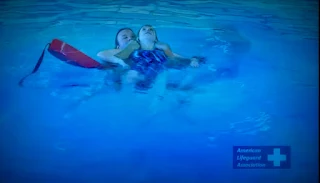crossorigin="anonymous">
How Can a Lifeguard Course Improve Your Emergency Response
Skills?
Emergencies can happen anytime, anywhere. Having the skills and knowledge to respond
appropriately can help save lives. One of the best ways to gain this valuable training is by
taking a lifeguard certification course offered through the American Lifeguard Association.
This article will explore how the lifeguard course develops important rescue and medical
response abilities that can serve you well outside of lifeguarding as well.
Hone Your Scanning and Recognition Techniques
Lifeguards must constantly scan their zone to identify potential problems or distress early.
The ALA Lifeguard course teaches precise scanning patterns and techniques to thoroughly
check large areas efficiently. Students practise recognizing subtle signs that someone may
need help, like a bather in distress or unsafe behaviours. These scanning and recognition
abilities carry over to many situations where quick identification of issues is important.
Being able to perform effective in-water rescues is a core lifeguard skill. The ALA
certification training focuses on building self-confidence in the water along with teaching
proven rescue methods. Some techniques practised include throw bag rescues, shepherding
panicked swimmers, spinal cord injury management, and more. Developing swift water
rescue proficiency means you'll be equipped to assist anyone in trouble whether on the job
or elsewhere.
Obtain Water Rescue Proficiency
Being able to perform effective in-water rescues is a core lifeguard skill. The ALA certification training focuses on building self-confidence in the water along with teaching proven rescue methods. Some techniques practised include throw bag rescues, shepherding panicked swimmers, spinal cord injury management, and more. Developing swift water rescue proficiency means you'll be equipped to assist anyone in trouble whether on the job or elsewhere.
Learn Valuable CPR and First Aid Skills
A key part of the lifeguard course includes American Heart Association CPR and first aid certification. Students gain the ability to perform CPR, use an AED, and address common medical emergencies like wounds, fractures, and choking until EMS responders arrive. Having up-to-date certification in first aid and CPR techniques means you can aid those in distress until emergency help is available, in any setting.
Develop Strong Decision-Making Ability
As a lifeguard, quick evaluation and judgement calls are crucial. Simulated emergency scenarios are regularly practised as part of the ALA training. This builds confidence in assessing unstable situations and taking command when needed most. It also helps future lifeguards think on their feet and determine the best response sequence under pressure. Strong decision-making transfers to handling stressful general emergencies outside of aquatic environments too.
Gain Experience With Emergency Equipment
The lifeguard course provides exposure to a variety of emergency devices that may be unexpectedly needed someday. Students become acquainted with tools like backboards for suspected spinal injuries, AEDs for cardiac arrest, rescue tube flotation devices and much more. Understanding how to operate key life-saving equipment without instruction offers enormous benefits for future medical crises anywhere. Being able to work a defibrillator or call for help with a megaphone and whistle can make all the difference during critical situations.
Expand Communication and Leadership Skills
Lifeguards take on a leadership role when an emergency occurs. The ALA program enhances communication and command abilities when in charge. How to clearly direct others to assist, speak professionally on the radio or phone to dispatch, and effectively interact with emergency responders is emphasised. Those seeking a career involving teamwork or emergency response will particularly appreciate grooming such leadership qualities.
Cultivate a Strong Work Ethic
Following regimented schedules, practising physical skills until perfected, and embracing standard operating procedures are standard in lifeguard training. This instals confidence and a strong sense of duty to help others. Lifeguards also learn time management, teamwork, adaptability and initiative - all valuable soft skills. Picking up a dedicated work ethic sets anyone up well for success in future endeavours.
Pursue Continued Professional Development
The ALA certification encourages lifeguards to annually renew their skills and education. Keeping certifications valid qualifies for job opportunities as well. But more importantly, it promotes life-long learning attuned to the latest evidence-based resuscitation techniques and emergency protocols. Committing to ongoing professional growth in any field reflects exemplary work standards that bolster career prospects.
Steps to Get Started
Those ready to strengthen their emergency response repertoire can visit AmericanLifeguardAssociation.com for upcoming lifeguard certification course dates in their area. Both part-time and full classroom offerings are available nationwide to fit varied schedules. All necessary equipment and study materials are provided right on-site. Classes tend to last a couple weekends or a full workweek depending on the format. Individuals should come prepared to participate in all water skills sessions at their assigned lifeguard course location. Upon completion, new lifeguards will hold dual ALA and AHA certifications honoured industry wide.
Final Opinion
Whether looking to begin a career as a lifeguard or simply acquire more safety skills, ALA training provides an invaluable learning experience. The insights, abilities and experience gained from certification have applications far surpassing the pool deck. Individuals who participate can emerge more confident and competent in any emergency situation. They'll leave empowered to take quick, calculated action when it matters most. That type of preparation truly does save lives - both professionally and personally for years to come.








0 Comments
Your Comments Are Valuable!